
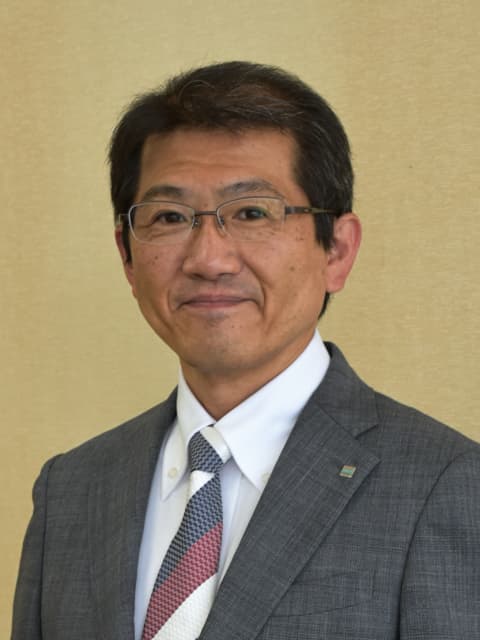
SECOM strives to create the "Social System Industry" and provide peace of mind, aligning with our mission to contribute to the realization of a worry-free society. As society is constantly changing, SECOM must always be innovative. The mission of the Intelligent Systems Laboratory (ISL) is to drive SECOM's innovation forward. In order to address the fears, concerns, and worries that underlie our daily lives and develop better services, it is crucial to deeply understand individuals and society. Within ISL, the ANSHIN Informatics Division and the Service Engineering Division fulfill this role.
SECOM developed Japan's first online security system, which utilizes sensors and communication technologies to detect intruders, thereby maximizing human efficiency. At ISL, the Vision Intelligence Division, Sensing Technology Division, and Digital Platform Division are actively researching advanced technologies such as image recognition, artificial intelligence, sensing, and trust in cyberspace. Additionally, the "Concept Modeling Division" focuses on the rapid prototyping methods for services.
ISL fosters collaboration among researchers with diverse specializations. This collaborative approach allows researchers to gain a comprehensive perspective on the implications of innovative services for society. ISL remains committed to continuously delivering technologies that enhance safety and convenience in people's lives.

To develop effective security services, it is essential to thoroughly examine the concept of "security." However, given the subjective nature of security, its definition can vary greatly. The Anshin Informatics Division conducts research in the fields of crime and crime prevention, disasters and disaster prevention, and elderly care and healthcare. The Division is engaged in information collection and analysis, philosophical examination, theory development, and system design.
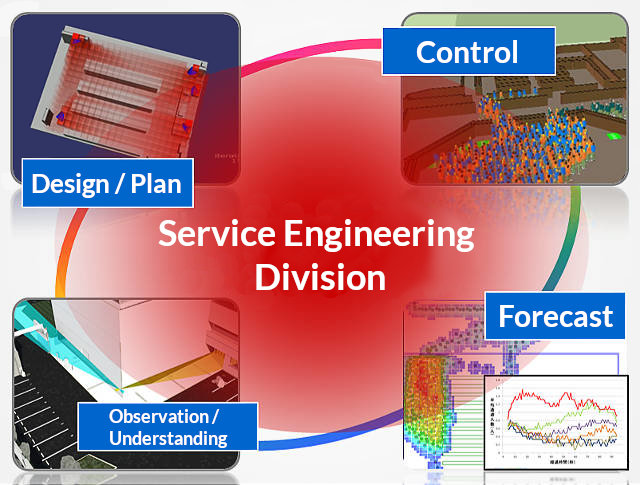
The Service Engineering Division conducts research on the engineering aspects of service design and processes. It is essential to quantify qualitative aspects such as individuals and society that are involved with the service. In addition, we are developing methodologies for implementing service design and optimal planning. These methodologies involve the process of understanding the status of individuals and objects, predicting future outcomes, and taking appropriate actions based on the obtained information and predictions.
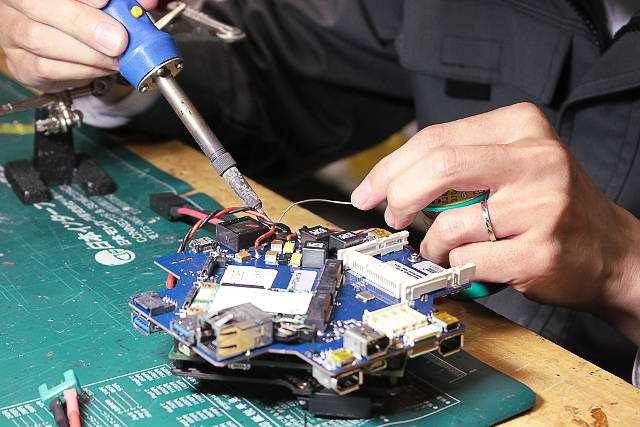
The Sensing Technology Division conducts research on sensing using various media, including light, sound, heat, and radio waves. It is imperative to comprehend the condition of both humans and objects in order to deliver effective services. Consequently, we conduct studies on advanced imaging and pattern recognition of sensing data, as well as research on multi-sensing that integrates multiple types of sensors. Additionally, we prioritize the efficient implementation of sensing algorithms into embedded systems, ensuring low power consumption and high-speed operation of the sensors.
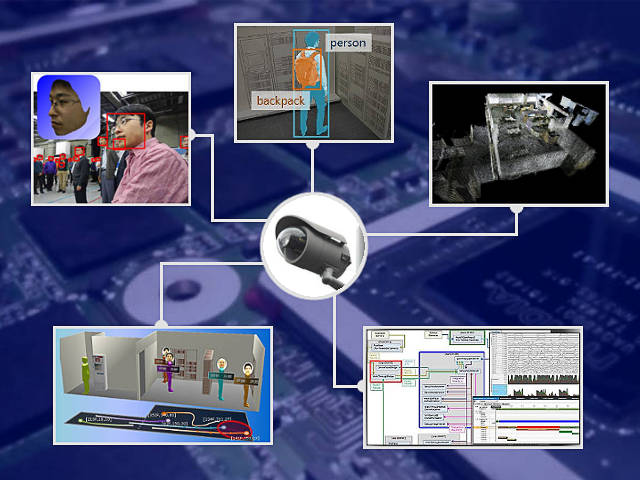
The Vision Intelligence Division's mission is to achieve advanced real-world sensing through the use of images. Despite the substantial advancements in computational environments in recent years, there are fundamental challenges that cannot be addressed solely by increasing the quantity of resources available. In the absence of definitive principles, the challenge lies in creating technology that meets societal demands and determining the appropriate methodology. This includes determining whether fragments of principles can be discovered in the process.
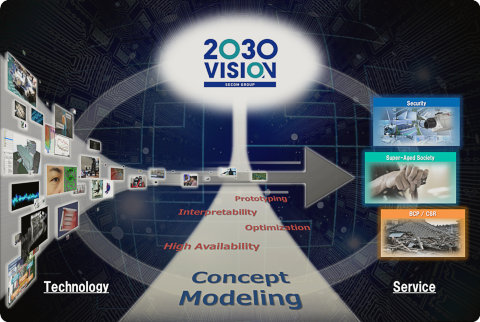
Prototyping is a crucial process in the development of services, as it allows for the practical experience of concepts and values. The Concept Modeling Division's mission is to explore prototype construction techniques from both theoretical and practical perspectives. Ensuring the prototype's stable performance in various environments necessitates the consideration of probabilistic delays, such as communication speed. However, this aspect is not currently incorporated into the initial consideration of the algorithm's principles. Furthermore, when algorithms are updated during the prototype construction phase, there is a potential need to start the specification from scratch. Therefore, it becomes advantageous to design prototypes with the anticipation of specification changes.
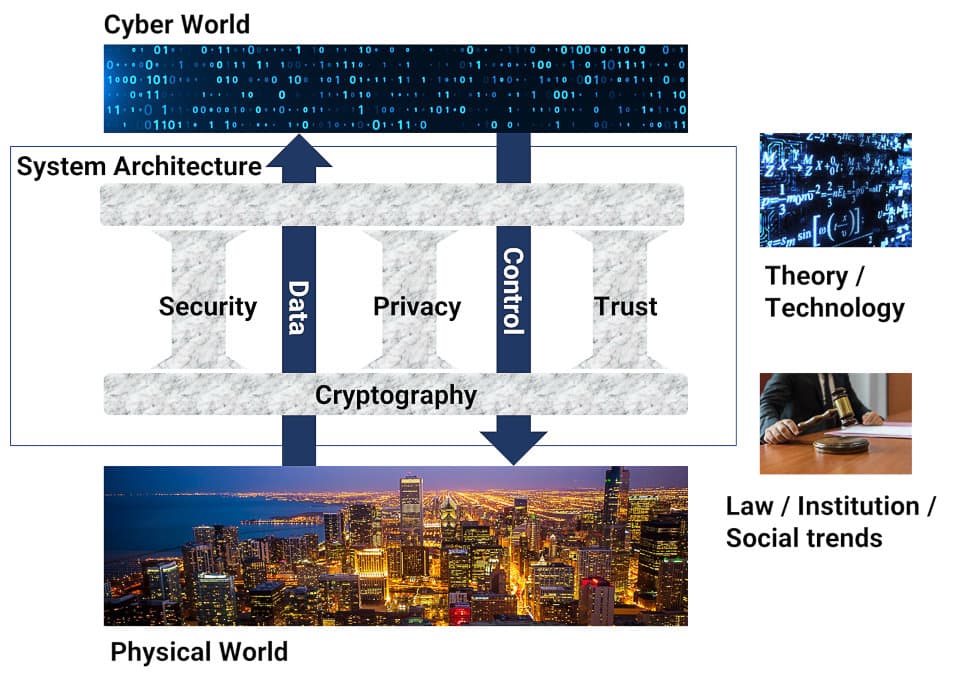
Digital technologies such as AI, IoT, and cloud computing are now widely employed. Digital technologies have driven the integration of the cyber world and the physical world. The era of advanced digital societies has arrived. In this era, the three perspectives of security, privacy, and trust are essential, since IoT devices and clouds from multiple providers are closely linked. To create the platforms for future digital services and their system architectures, we are conducting research activities while integrating various technologies based on these perspectives across disciplines.